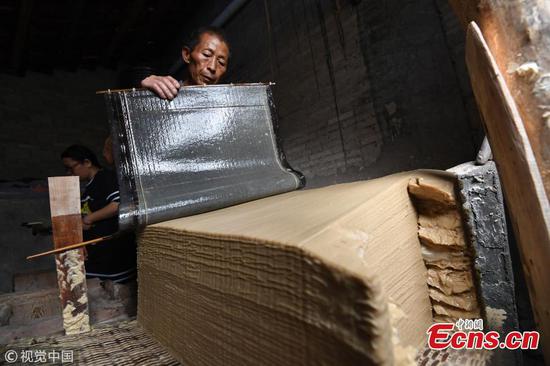A report has indicated that a large percentage of Chinese parents accept the idea of their children studying abroad before finishing high school, People’s Daily Overseas Edition reported.
27 percent of surveyed parents approve of children studying abroad in the primary school period; for junior middle school and senior middle school the figures are 29 percent and 24 percent respectively, according to a report jointly released by Chinese and foreign education organizations.
Why studying abroad?
Learning English is the main reason parents prefer sending their kids abroad.
“Young children have good receptivity to languages, and the English environment is beneficial to their language learning process,” said Ms. Li, whose child studies in a UK middle school. Li wanted her child to adapt to local life as early as possible, so that they can be better prepared for university life in the UK.
Mr. Fan, whose son studies at a senior middle school in the U.S., expressed that “by studying abroad, young students can enrich their life experience and broaden their vision, and studying overseas will ease the pressure my son would have faced in higher foreign education and employment in the future.”
Good or bad choice?
Mr. Zhang expressed that having children study abroad at an early age is helpful for them to learn to be independent and solve social problems by themselves. Zhang’s son studies in a senior middle school in the U.S.. He explains, “I feel that he is growing quickly after studying abroad, he is more independent than before”.
However, parents and children may have different opinions when it comes to overseas education.
Wang Meng has been studying in Canada since her first year of junior middle school, and says she felt abandoned when she first arrived in such a new environment. “At the beginning, I had no one to tell when I was in trouble, my parents were too far away to provide any help and I felt abandoned by the world.”
Experts suggest that parents should help young students better prepare before sending them overseas. They can send children to friends’ or domestic boarding schools to help them become independent. If the children are too young to take care of themselves, it’s better to have teachers or parents accompany them when they study abroad.
Money is not the only factor
Communication is the first barrier for those studying abroad. Many young Chinese students began their overseas study before mastering the local language and experienced great trouble in life and study because of this.
Ms. Li’s son, who hadn’t received any English speaking training before he moved abroad, told his mother that his English was the worst in class and he couldn’t communicate with other students.
Xu Xiwen, who moved to South Korea during senior middle school, said that she felt lonely to begin with because she couldn’t speak Korean and didn’t know anyone. However, after mastering Korean, she gradually adapted to her new environment.
Personal safety is the main concern
Fan said personal safety is the most important thing for parents when considering sending their kids abroad. He said it’s better to choose cities with lower crime rates, and he also prepared his son with information on situations to avoid.
School dormitories and host families are reliable choices for accommodation, making sure young students are taken care of, Fan said.
“Host family can take care of the children and protect them. Some host families will take the students to various events and exhibitions, which is a good way to get a feel for the foreign culture and local life”, said Fan.


















































